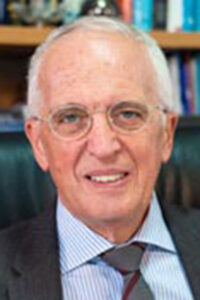
During a Monday afternoon symposium, three experts will examine the potential for extending the time between insulin injections, analyzing the need for, the feasibility of, and the clinical aspects of weekly basal insulin analogs.
The one-hour session, which will begin at 3:15 p.m. CT Monday, June 15, is titled Weekly Basal Insulin—The Wave of the Future?
“This is a field where developments are rapidly evolving,” said J. Hans DeVries, MD, PhD, Medical Director at Profil Institute for Metabolic Research in Neuss, Germany. “There are now two companies with a once-weekly insulin in phase II, so this will come to the market within a few years—the foreseeable future. It’s very interesting to hear the mechanisms of prolongation, how pharmaceutical companies and their scientists achieve this prolonged action.”
While early research into weekly basal insulin has produced some promising results, Stefano Del Prato, MD, cautions that more needs to be done to define the path forward. Dr. Del Prato, Doctor of Medicine in the Department of Clinical and Experimental Medicine at the University of Pisa in Italy, will review some of the limited clinical evidence on weekly basal insulin analogs currently available.
One of two weekly insulins in active development is icodec, which was studied in comparison to once-daily glargine U100 in type 2 diabetes patients in a double-blind clinical trial.

“We have some answers, but those answers come from an N-of-1 study,” Dr. Del Prato said. “So my final conclusion is: interesting, intriguing, but we are still at the beginning of a long road to be followed in order to really proceed with what could be the clinical implication. The opportunities need to be weighed in proper clinical trials trying to answer all the clinical questions.”
In the initial trial, icodec was as effective as daily insulin in patients with type 2 diabetes. The researchers reported no major increase of hypoglycemia with the use of weekly insulin, and the duration of hypoglycemic episodes was not significantly different between daily and weekly insulin use.
“The study is encouraging,” Dr. Del Prato said. “The study is good, but before we take a definite position, we need more information.”
Philip Home, DM, DPhil, Emeritus Professor of Diabetes Medicine in the Translational and Clinical Research Institute at Newcastle University in Newcastle upon Tyne, United Kingdom, will begin the discussion with a presentation that asks the question, “Do We Need Even Longer-Acting Basal Insulin Analogs?”
Symposium Chair Julio Rosenstock, MD, Director of the Dallas Diabetes Research Center at Medical City Dallas and Clinical Professor of Medicine at the University of Texas Southwestern Medical Center, provided additional information on icodec during an oral presentation on Sunday titled Once-Weekly Basal Insulin Icodec Offers Comparable Efficacy and Safety vs. Once-Daily Insulin Glargine U100 in Insulin-Naïve Patients with T2D Inadequately Controlled on OADS.
VIEW THIS PRESENTATION
Already registered?
View this presentation at ADA2020.org
Not yet registered?
Register now to access all presentations from the Virtual 80th Scientific Sessions

